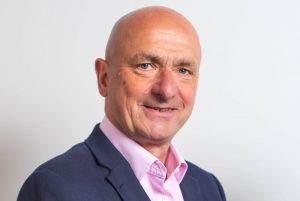Former PM David Cameron joins Northern businesses showcasing UK life science

The world’s largest biotech gathering taking place in San Diego this week, the BIO Convention, has seen the North of England showcase its offer to more than 60 countries – and former Prime Minister David Cameron talk down fears over what Brexit will mean for the sector.
Four of the seven sponsors of the Department for International Trade’s UK stand at BIO come from the North; including the Alderley Park campus in Cheshire, and North West EHealth, based at CityLabs in Manchester. The Northern Health Service Alliance and the government’s Northern Powerhouse group also feature prominently.
Delivering the keynote address, Mr Cameron told delegates that he would think about the outcome of the EU referendum “every day until I died – not because of the consequences for me, but because of what it means for the country.”
Around the question of EU citizens’ right to have employment in the UK, he said: “Don’t worry about EU nationals working in your business, their rights will be guaranteed. Don’t worry about accessing talent from the EU, some form of online work permit will be available. Spend your time on the exact nature of the trading relationship between UK and EU.”
Mr Cameron suggested that Britain could stay in the European Medicines Agency (EMA), which is responsible for the scientific evaluation and supervision of medicines. He also proposed that the UK could seek an equivalence deal between the EMA and the UK regulator, the Medicines and Healthcare Products Regulatory Agency.
Having come on stage to the soundtrack of rock band Florence + The Machine and the lyric: “It’s always darkest before the dawn”, Mr Cameron was asked by BIO President and CEO, Jim Greenwood whether he regretted holding the EU referendum.
“It was the right decision. This issue of Europe was poisoning British politics. Our anti-system party, UKIP, was scoring 20-30% in polls and at European elections. Tony Blair had promised a referendum but didn’t deliver it. I’d promised a referendum on the Lisbon Treaty but couldn’t deliver it. This issue was coming. And it needed to be dealt with. I felt it was better to do it at a time when you had a Conservative government that wanted to stay in.”
Mr Cameron said he is confident the UK can find a way forward: “If Britain was a small country on the edge of Europe that could be pushed around I would worry a lot. But we are still the sixth biggest economy in the world. We have many strengths and I think we have the ability to negotiate with our neighbours and partners a fair outcome. And that is what I think will happen.”
He also defended Prime Minister Theresa May’s decision to call an early election: “She was trying to do something very sensible. Brexit is enormously difficult to negotiate and do. She called the election with two aims. First to give herself more time – a five-year Parliament so you can have transitional arrangements and use all the time you’ve got. But she also wanted a bigger mandate. A greater ability to face down critics either in her own party or in Brussels. Sadly this hasn’t worked.”
Asked what had gone wrong, he said: “It’s always easy to criticise but if you hold an election which is about strengthening your hand in Brexit then you probably ought to focus squarely on that – don’t introduce too many other extra ideas.
“I hope we can deliver Brexit in a way where we stay as close as possible to the single market. We were reluctant tenants [in the EU]. We can be good neighbours. That’s the goal.”
Asked if there was a common thread the unexpected outcome of three polls – a hung Parliament, President Trump and the EU referendum, Mr Cameron said: “There’s an unease with globalisation. I’m a free-trading, inward-investment encouraging Conservative but you have to recognise two things. One is the economic effect – too many have been left behind. We need to act on that. But there is also a cultural problem. The pace of immigration has been more than people are prepared to cope with. In France the moderate centrist Macron won but in the first round almost 50% of the people voted for anti-system parties. The job for mainstream politician to address these causes of populism.”
Dr Chris Doherty, Managing Director of Alderley Park, commented: “It was an impressive performance. There is a feeling within UK life science that David Cameron has always understood the sector and proved to be a good ambassador here on the global stage.
“He has done more than most to put dementia on the global agenda, driving an ambition shared by all G7 nations to find a disease-modifying treatment by 2025. Mr Cameron visited us on the UK stand after the keynote address and was no doubt impressed that, with over 500 registered delegates, the UK has the largest overseas presence of any country at this event.”
A video of Dr Doherty previewing the conference is available here






